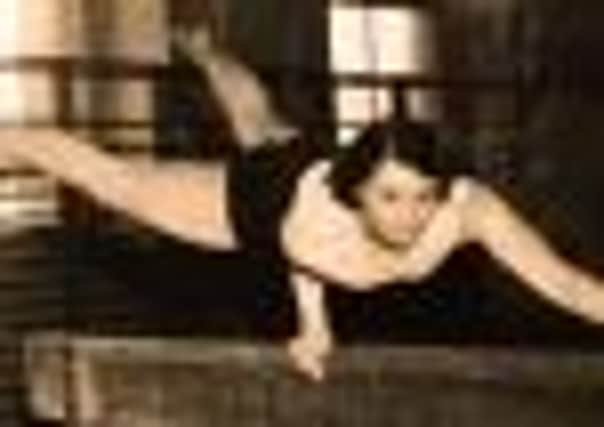Video: Remembering Baildon’s Olympic heroes of 1948


Despite the overwhelming gloom and economic difficulty the country faced in pulling itself out of the mire in 1948, the 79-year-old great-grandmother who was then 15, recalls those times with great happiness.
The teenage daughter of a Bradford mill owner, she was fortunate in having a wealthy father – one of the few to possess a car – who drove her to events in her bid for Olympic stardom.
Advertisement
Hide AdAdvertisement
Hide AdNow with the 2012 Olympic Games closing in, she pulls out her diary to remind herself of the very different times in which today’s cosseted athletes now live.


Instead of sharing towels and begging vital equipment from the Swiss, today’s Olympians live a life of unimaginable luxury.
Six years old when she heard her first terrifying air raid siren, she has vivid memories of life in Bradford when the nation fought for its existence.
A relief from all the austerity was found in sport at Shipley Selective Central School where headmaster ED Kitchen was keen to promote physical exercise.
Advertisement
Hide AdAdvertisement
Hide AdJoining the school’s netball team she soon found her metier and it wasn’t long before she met a good friend, the bubbly Irene Hirst, also from Baildon, Bradford, who encouraged her to come to the gym.
Through Irene she ended up being coached by Carrie Pollard, the international team’s gymnastics coach, and soon it was a short hop for both of them to being selected for the Olympics.
She says: “I think my mother was glad to get rid of me to the Games because I was never the right way up – I was always doing a headstand.”
Her diary records her fears over leaving the comfort of home for the rigour of the Olympics. “Wednesday, July 28, 1948: Went to London by train. I didn’t want to go. I’d rather stay at home.”
Advertisement
Hide AdAdvertisement
Hide AdBut she was soon having the time of her life , endlessly intrigued by the novelty of the London Underground, dazzled by the magnificence of Buckingham Palace – and enjoying all the glamour of the well-heeled shops.
It was fascinating for her to meet so many different nationalities – although the Germans were not invited – but it was the Americans and Australians she remembers best.
The former were friendly and shared their meat while the more aloof Aussies brought tinned fruit which they ate by themselves.
And when it came to Olympic kit there was no matching the Americans who enjoyed wearing their crisp white leotards while the British gymnasts trained in navy blue knickers and white sleeveless tops.
Advertisement
Hide AdAdvertisement
Hide AdNow Mrs Beever and a mother-of-three, she said: “The Americans looked so smart and lovely. We had to buy our own footwear – if we could get it.
“On the day itself – which was so hot that people fainted – we were given a costume with a divided skirt, which was hardly ideal.”
She added: “There was no transport laid on, we had to use the Tube and bus. The gymnasts had to train in the lead-up to the Games by making do with rooms above public houses, cellars below breweries and an assortment of Sunday school rooms.”
Unsurprisingly given the circumstances, the Games slogan was: “Not in winning but in taking part.” The British team finished ninth.
Advertisement
Hide AdAdvertisement
Hide AdAnd in a telling indictment of today’s society the only sort of drugs testing was to see whether the medal winners had overdosed on the Horlicks tablets handed out to those taking part.
She added: “But for all that it was wonderful, unforgettable experience that we all cherished.”
Another Yorkshire athlete taking part was Gordon “Tiny” Thomas, now 90, who won a team silver medal in the men’s cycling road race. He was just 18 when the war started and was in North Africa and Italy with the Royal Artillery.
Speaking at his home in Baildon, he said: “I was 27 and had been serving in North Africa and Italy. Fortunately I came out of Italy alive. The Olympics were marvellous. I got in the sprint time because I was a good finisher.”
He won the Tour of Britain in 1953.